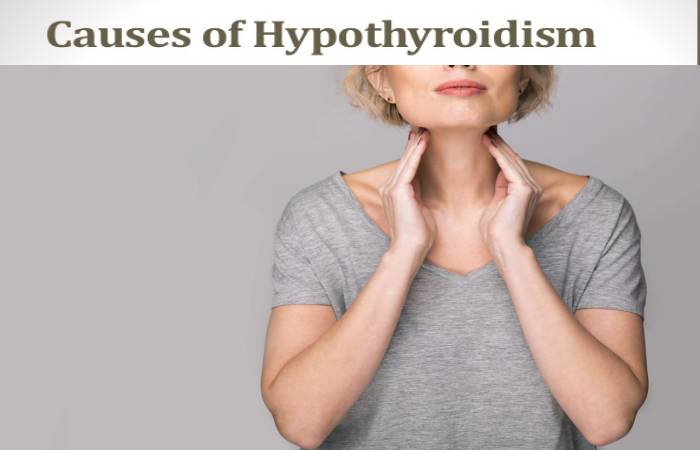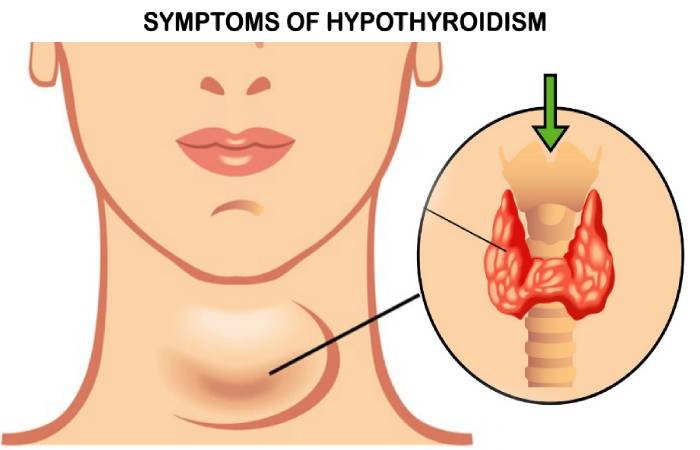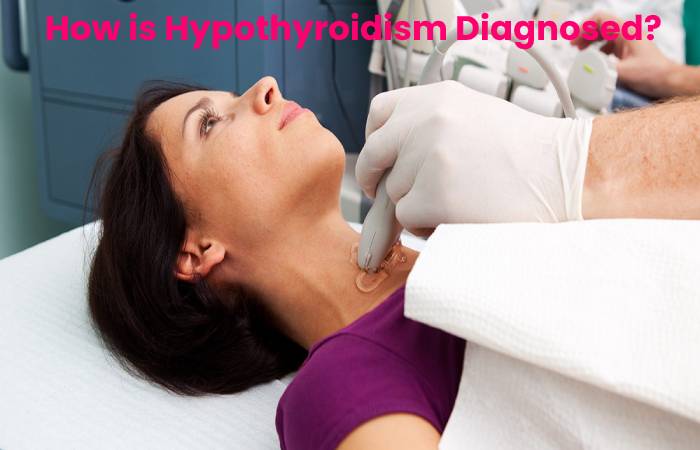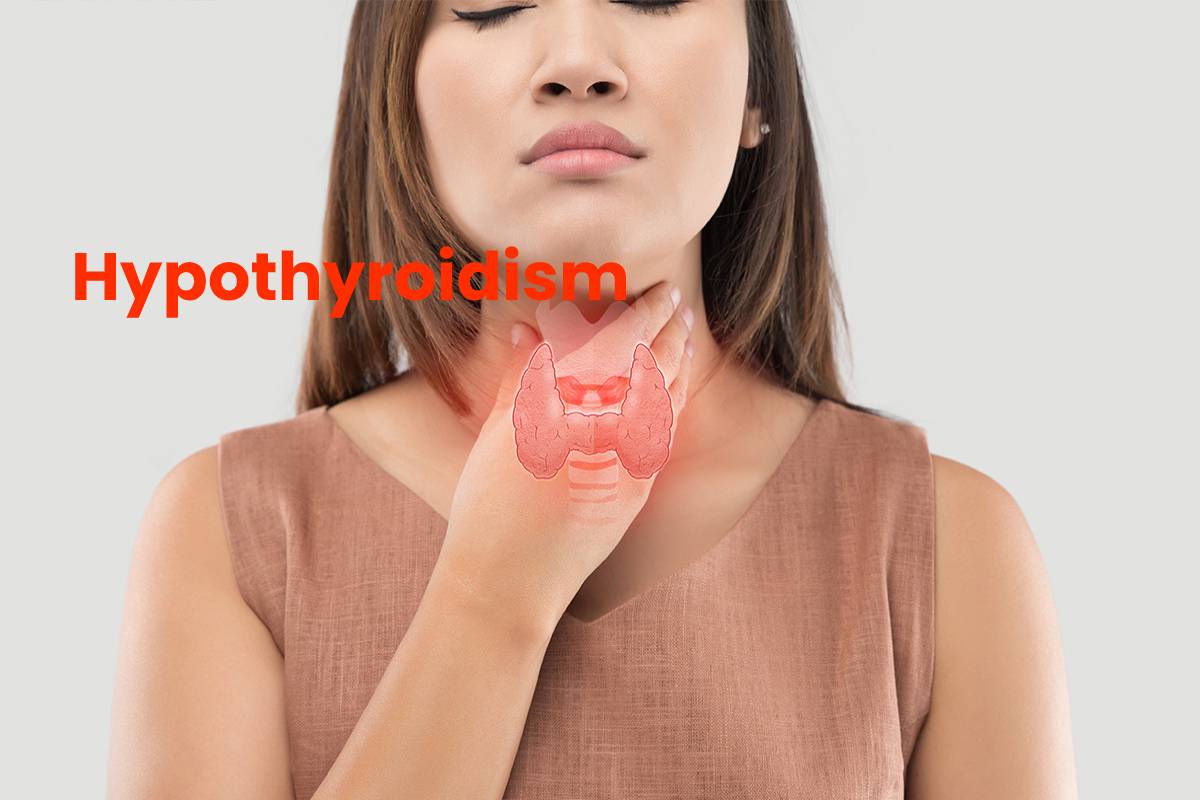Table of Contents
Hypothyroidism Definition
Hypothyroidism is a defect in the production of thyroid hormones by the thyroid. The thyroid gland locates in the front of the neck.
It is responsible for the release into the blood of thyroid hormones (hormone T3 and hormone T4), which play essential actions in metabolism, such as weight control, temperature, movement of the digestive system, etc.
The release of these hormones regulates by thyroid-stimulating hormone (TSH), a hormone produced in the pituitary (a gland located in the brain).
What are the Causes of Hypothyroidism?

Hypothyroidism is usually due to a failure of the thyroid itself (primary hypothyroidism) and, exceptionally.
It a loss at the pituitary level, which does not adequately secrete the thyroid’s TSH work (secondary hypothyroidism).
The causes that can make the thyroid not work are:
- Destruction of the thyroid by an autoimmune disease called Hashimoto’s thyroiditis. It is the most frequent cause of hypothyroidism, affecting mainly women.
- Other chronic thyroid inflammations (thyroiditis) such as postpartum thyroiditis.
- The administration of medicines that alter the thyroid function, such as the chronic taking of amiodarone or lithium.
- The lack of iodine. It usually presents with goiter. It is currently an infrequent cause of hypothyroidism in Spain.
- Destruction of the thyroid from having administered radiation therapy to the neck area.
- The destruction of the thyroid by the administration of radioactive iodine.
- The destruction of the thyroid by diseases infiltrate the thyroid and prevent it from functioning correctly, such as hemochromatosis, amyloidosis, sarcoidosis, scleroderma, etc.
- Surgical resection of the thyroid as a consequence of cancer.
- Congenital (birth) hypothyroidism.
- Tumors or other diseases that affect the pituitary gland and lead to secondary.
What are the Symptoms of Hypothyroidism?

Its symptoms vary significantly from one person to another and depend mainly on the thyroid’s degree of destruction. Sometimes it does not produce any symptoms and is discovered by doing a routine thyroid test.
Sometimes specific analytical alterations such as very high cholesterol or an elevated creatine kinase (CK) can be a consequence of hypothyroidism. Among the symptoms that hypothyroidism can produce are:
- Tiredness and muscle weakness.
- Dry Skin.
- Hair loss
- Cold.
- The tendency to gain weight.
- Constipation.
- A leg swelling, eyelid swelling.
- Slowing of the heart (bradycardia)
- Hoarsely.
- She hears loss.
- Alterations in menstruation or loss of menstruation.
- Depression, low concentration, memory disturbances, and psychiatric symptoms.
- Carpal tunnel syndrome.
Complications of Hypothyroidism
- The myxedema coma is a severe complication of hypothyroidism.
- Hypothyroidism consists of entering a coma, sometimes with seizures, due to hypothyroidism that has gone unnoticed and has not treated or due to the patient’s abandonment of treatment.
- It usually triggers by an infection, a stroke, a myocardial infarction, or any other severe disease and occurs mainly in the elderly. It requires the administration of thyroid hormones by vein but has a high mortality.
How is Hypothyroidism Diagnosed?

- The diagnosis of hypothyroidism makes a blood test that determines TSH and thyroid hormones. When there is hypothyroidism, T3 and T4 are low in the blood.
- It is usually associated with a very high TSH, which indicates that the pituitary trying to compensate for the low levels of T3 and T4 by producing more TSH to force the thyroid to work.
- If TSH is also low in the blood, it indicates that the defect is in the pituitary gland, which cannot send enough TSH for the thyroid to work correctly (secondary hypothyroidism).
- Subclinical hypothyroidism is prevalent, which consists of that TSH is high with normal thyroid hormones (T3 and T4).
- This alteration indicates that the thyroid has already begun to be altered but continues to function correctly (standard T3 and T4) at the expense of an excessive amount of TSH (high TSH) being sent to it from the brain to force it to perform its job.
- In addition to diagnosing the presence of hypothyroidism, other studies should do to establish its cause, in general, new blood tests and a thyroid scan.
Is Hypothyroidism Hereditary?
It is prevalent among family members, so there are likely hereditary factors that not fully identify.
Prevention of Hypothyroidism
- It cannot be prevented, except for hypothyroidism secondary to iodine deficiency.
- This hypothyroidism is no longer frequent in Spain, although it is still the leading cause of hypothyroidism globally.
- The count of iodine to table salt has reduced its incidence worldwide. It associate with certain medications must be detected early by performing periodic analyzes.
What is the Prognosis for Hypothyroidism?
In general, autoimmune it, the most common, can not be cured and is irreversible. However, people with it can lead completely everyday lives with treatment.
Treatment of Hypothyroidism
- Treatment of hypothyroidism is the administration of thyroid hormones by mouth throughout life.
- In people with heart problems and elderly patients, shallow doses should start. Subsequently, the amount of thyroid hormone should slowly increase, adjusting it to TSH concentration in the blood.
- Dosage changes generally make every 4 weeks. The number of thyroid hormones should increase until TSH reaches average values. After starting treatment, it may take several months for symptoms to improve.
- In certain situations associated with stress, the doctor may increase the dose with increased needs for thyroid hormones. These situations include surgeries, serious infections, etc.
- It is usually necessary to increase the dose up to 50% in pregnancy, returning to the previous amounts once the child is born.
- About taking thyroid hormones, the following factors should take into account:
- Thyroid hormones should administer on an empty stomach, ideally 1 hour before eating any food.
- Traditionally it indicates that they were taken in the morning, half an hour before breakfast, but recent studies suggest that it the same to grab them before dinner.
- Medication should never discontinue even if the patient is well. If a dose miss, it should take together with the next day’s amount.
- If the thyroid hormone’s brand name is change, you should discuss it with your doctor as the dose may need to be adjust.
- Some foods can alter thyroid hormones’ absorption, so you should tell your doctor if you have changed your diet, incorporating a lot of soy or a high amount of fiber.
- Thyroid hormones should not take with fiber, calcium, iron, multivitamin, antacid, or resin supplements.
Conclusion
It is prevalent among family members, so there are likely hereditary factors that not fully identify. Treatment of it is the administration of thyroid hormones by mouth throughout life.

